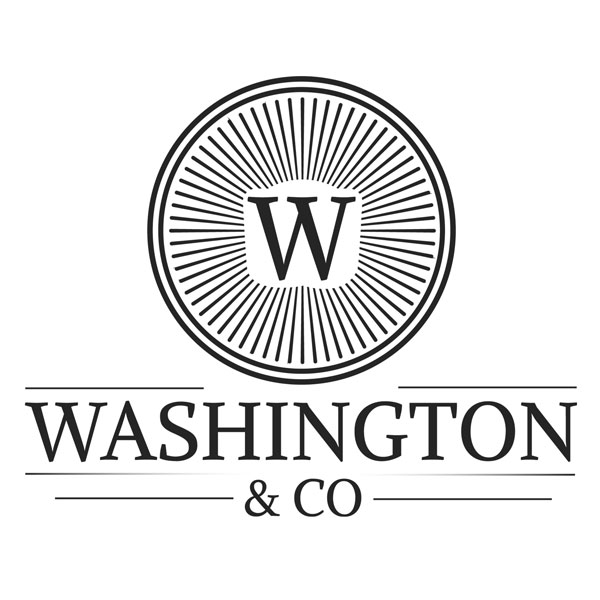Introduction
A tax audit can be one of the most stressful situations for any business owner—but it doesn’t have to be. With proper preparation and organization, you can navigate an audit confidently and ensure your business stays compliant. At Washington & Co Inc., we help businesses prepare for audits, maintain thorough records, and reduce the risk of costly surprises.
In this post, we’ll explore what triggers an audit, how to prepare, and steps to safeguard your business.
What Triggers a Tax Audit?
The IRS and state tax authorities use certain red flags and automated systems to determine which businesses to audit. Understanding these triggers can help you avoid unnecessary scrutiny:
- Large Deductions Relative to Income: Claiming unusually large deductions compared to your revenue can attract attention.
- Excessive Cash Transactions: Businesses that deal heavily in cash, such as restaurants or retail, may face closer examination.
- Missing or Inconsistent Information: Errors or mismatches between your tax return and information reported by other sources (like W-2s or 1099s) can trigger an audit.
- Home Office Deduction Errors: Incorrectly claiming this deduction without meeting strict requirements can lead to red flags.
- Unreported Income: Failing to report all income, including 1099s or cash payments, can significantly increase audit risk.
While not all audits are triggered by red flags, knowing these common causes helps you take steps to stay compliant and avoid unnecessary risks.
How to Prepare for a Tax Audit
1. Maintain Accurate and Organized Records
One of the most critical aspects of audit preparation is thorough documentation. Keep detailed and organized records for all business transactions, including:
- Invoices, receipts, and bank statements
- Payroll records and tax forms (W-2s, 1099s)
- Business expense documentation (e.g., travel, meals, home office expenses)
- Contracts and agreements with clients, vendors, or employees
Using accounting software or cloud-based solutions can simplify record-keeping and ensure your documents are easy to access and share if needed.
2. Double-Check Your Tax Returns
Accuracy is key when filing taxes. Before submitting your returns, ensure:
- All income sources are reported accurately.
- Deductions and credits are legitimate and supported by documentation.
- There are no typos, math errors, or inconsistencies.
Working with a professional tax advisor can minimize errors and ensure your tax return is audit-ready.
3. Understand Your Deductions
Incorrect or excessive deductions are a common audit trigger. Make sure you can justify every deduction you claim:
- Home Office Deduction: Ensure your workspace meets the IRS requirements for exclusive and regular business use.
- Vehicle Expenses: Keep mileage logs and receipts for fuel, maintenance, and insurance.
- Travel and Meals: Document the business purpose for all travel-related expenses, including meals and entertainment.
By understanding what qualifies as a legitimate deduction, you can confidently defend your claims if questioned.
4. Respond to IRS Notices Promptly
If you receive an IRS notice, respond promptly and professionally. Ignoring audit-related requests can escalate the issue and lead to penalties. Work with a tax professional to understand the request and prepare a clear, thorough response.
5. Seek Professional Help
Navigating an audit without expert support can be overwhelming. Tax professionals like Washington & Co Inc. can:
- Communicate directly with auditors on your behalf.
- Help gather and organize the required documentation.
- Ensure your rights as a taxpayer are protected.
- Provide expert guidance to resolve the audit efficiently.
Having a professional by your side can significantly reduce stress and improve the outcome of an audit.
Steps to Protect Your Business from Future Audits
Stay Proactive with Quarterly Tax Planning
Regular tax planning ensures that your financials are accurate and up-to-date throughout the year. This proactive approach helps identify potential issues early and ensures your tax filings are compliant.
Separate Business and Personal Finances
Commingling business and personal expenses is a major red flag for auditors. Always maintain a separate business bank account and credit card to keep transactions clean and organized.
Document Everything
Keep detailed records for all business expenses, including supporting evidence for deductions, credits, and reported income. Organized documentation makes audits far less daunting.
Work with a Professional Tax Advisor
A tax advisor helps you stay compliant, minimize errors, and optimize your tax strategy. Their expertise ensures you’re prepared for an audit and reduces the likelihood of triggering one in the first place.
Why Choose Washington & Co Inc. to Assist with Audits?
At Washington & Co Inc., we specialize in helping businesses prepare for and navigate tax audits with confidence. Here’s how we can support you:
- Pre-Audit Preparation: We ensure your records are accurate, organized, and audit-ready.
- Representation: We communicate with auditors on your behalf, reducing stress and simplifying the process.
- Expert Guidance: We provide clear, professional advice to resolve audits efficiently and protect your interests.
- Ongoing Compliance Support: Through proactive tax planning, we help you minimize audit risk and stay compliant year-round.
Conclusion
While the thought of a tax audit can be intimidating, preparation and organization are key to navigating it successfully. By keeping accurate records, understanding your deductions, and seeking professional help, you can approach an audit with confidence and minimize its impact on your business.
At Washington & Co Inc., we help you stay ready, compliant, and confident—no matter what comes your way.
Need Help Preparing for an Audit or Staying Audit-Ready?
Contact us today to schedule a consultation and let our team guide you through proactive tax preparation and audit support.
